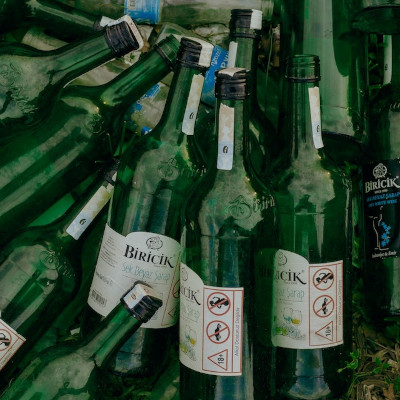
10 Sep What is Alcohol Abuse Disorder? Withdrawal Symptoms and Treatment Options
You may suffer from alcohol abuse disorder, also known as alcoholism, if you cannot stop drinking alcohol despite it causing serious problems in your life. This article will provide an overview of what alcohol abuse disorder is, the symptoms and dangers of alcohol abuse disorder, and the available treatment options.
Table of Contents:
Definition of alcohol abuse disorder
Alcohol abuse disorder is a medical disorder in which a person abuses alcohol, causing recurrent social, emotional, and work distress. In extreme cases, an alcohol abuser may become violent to others. Therefore, alcohol abuse disorder may become detrimental if not treated properly.
The stages of alcohol abuse disorder that you need to know
If you struggle with alcoholism, there are four stages that you may not have heard of. Knowing these stages will help you better understand the breakdown that leads to alcohol abuse disorder.
Stage #1: At-risk stage
This is the first stage in which you start drinking alcohol at social gatherings to destress yourself. At this point, you notice that you’ve built up a tolerance.
Stage #2: Early alcohol abuse use disorder
At this stage, you start noticing that you’re having blackouts, drinking in solitude or without anyone’s knowledge, and you often think about alcohol.
Stage #3: Mid-stage alcohol abuse disorder
At this stage, your alcohol abuse has gotten out of hand. At this point, you’re having major issues that interfere with your relationships with loved ones, finances, your mental and physical health, and work.
Stage #4: End-stage alcohol abuse disorder
This is the most serious stage of alcoholism. At this stage, alcohol rules over your life. At this stage, you’re not consuming anything else except alcohol while continually ignoring all areas of your life. At this point, you’re having complications with organ damage, and you’re close to the end of your life.
How is alcohol abuse disorder different from binge drinking?
You may wonder what the difference between alcohol abuse disorder and binge drinking is. Learning about these differences will help you understand whether or not you may be struggling with one of these problems.
What does it mean to binge drink?
Binge drinking is described as an episode in which a person drinks a certain amount of alcohol that raises your BAC, also known as your blood alcohol concentration, to at least 0.08 percent or more. When you’ve reached having this much alcohol in your system, you’re at a point where you cannot legally drive. You binge drink if you persistently drink alcohol within two hours.
Binge drinking based on sex and age
Sex and age are factors that affect how binge drinking is classified. Here is a list of how your age and sex determine the point at which you are binge drinking.
- Having five more drinks for adult men
- Have five or more drinks for boys between the ages of 16-17 years old
- Having four or more drinks for boys between the ages of 14-15 years old
- Having four or more drinks for adult women
- Having three or more drinks for girls between the ages of 16-17 years old
- Have three or more drinks or more for girls between 14-15 years old

Why alcohol abuse disorder differs from binge drinking
The biggest difference between alcohol abuse disorder and binge drinking is that alcohol abuse disorder affects all areas of your life in which you cannot stop drinking alcohol. In contrast, binge drinking doesn’t necessarily mean you have a chronic problem with abusing alcohol. Rather, binge drinking indicates a behavioral issue, while alcohol abuse disorder is a medical and psychological issue.
Short-term and long-term effects – What are they?
Alcohol abuse disorder causes you to suffer from short-term and long-term effects. The short-term effects consist of the following:
- Loss of balance
- Having blackouts
- A feeling of relaxation or excessive tiredness
- Decreased inhibitions
- Mood changes
- Headache
- Feeling extreme giddiness or happiness
- Having trouble making decisions
- Impulsiveness
- Speech that is slurred or slowed
- Vision, hearing, or perception changes
- Feeling nauseous or vomiting
- Experiencing diarrhea
In addition, long-term effects include:
- Memory and concentration issues
- Frequent changes in mood, such as feeling irritable or anxious
- Changes in weight or appetite
- Sleep trouble
- Family and romantic relationship issues
- Getting sick more easily
- Trouble focusing on tasks
- Sex drive and sexual function issues
What you need to know about alcohol withdrawal symptoms
Depending on your situation, you may or not suffer from alcohol withdrawal symptoms after you stop abusing alcohol.
6 hours
What happens 6 hours after you stop drinking alcohol
Generally, you start feeling mild symptoms during this time frame. After having your last drink, these are the effects you may feel six hours later:
- Vomiting
- Trembling hands
- Insomnia
- Headache
- Nausea
12-48 hours
What happens 12-48 hours after you stop drinking alcohol
Within more extreme issues, hallucinations can occur 12-48 hours later after drinking. In other words, you can start hearing, seeing, or feeling things that aren’t present.
48-72 hours
What happens 48-72 hours after you stop drinking alcohol
At this point, some individuals may experience delirium tremens. This is a rare condition where you experience lucid hallucinations and delusions. If you do experience these symptoms, you may also experience the following:
- Fever
- Confusion
- Excessive sweating
- High blood pressure
- Racing heart
What you should do when you’re experiencing alcohol withdrawal
For most scenarios, you can take some steps to handle this situation. These steps involve:
- Limiting social contact
- Being in a quiet area
- Eating nutritious food and drinking plenty of fluids
- Being in a supportive environment
- Dim lighting

Alcohol abuse disorder – What causes it?
It’s not entirely known what causes this disorder. It is believed that alcohol abuse disorder is caused by trauma during early childhood, genetics, and an alcohol abuser’s attempt to relieve emotional suffering. You have a risk of developing this disorder if you:
- Consume alcohol starting at a young age
- Have a family history of alcohol abuse
- Suffered from a traumatic event
- Struggle with mental health problems
The symptoms of alcohol abuse disorder that you need to know
There are several warnings of alcohol abuse disorder that you need to pay attention to. Here are signs that you shouldn’t ignore.
- Spending the majority of time drinking
- Increased need to drink more to get the desired effect
- Constant hangovers
- Inability to stop drinking after starting
- Drinking more than initially intended
- Risky behavior while drinking
The danger of alcohol poisoning
Drinking alcohol is harmful enough, but it can become even more dangerous if you get alcohol poisoning. Alcohol poisoning, or alcohol overdose, means that you’ve reached a point where you have too much alcohol in your blood. Alcohol, a depressant, slows down parts of your body.
Alcohol poisoning – What are the symptoms?
The symptoms of alcohol poisoning can start mild and can potentially become worse over time. For example, you could smell like alcohol and have cold sweat on your skin. You could also have poor balance and confusion.
There are also more serious signs of alcohol poisoning. These symptoms include:
- Difficulty staying awake
- Skin that appears pale or bluish
- Having seizures
- Delayed responses
- Extreme confusion
- Vomiting
- Low body temperature
- Very slow heartbeat
- Breathing slowly

Complications of alcohol poisoning that you need to know
If alcohol poisoning isn’t handled properly, it can lead to severe consequences. These severe complications include:
- Having a heart Attack
- Coma
- Having seizures
- Extreme dehydration
- Choking on your vomit
- Brain damage
- Difficulty breathing due to vomit in the lungs
- Death
Risk factors of alcohol poisoning that you need to know
As for risk factors, middle-aged males have the highest chance of getting alcohol poisoning. This is because males tend to consume alcohol more than females do. In addition, middle-aged people tend to be on prescription medications. This means that there is also a higher risk for alcohol poisoning.
Additional information on risk factors of alcohol poisoning
Other factors increase your likelihood of getting alcohol poisoning. These factors include how much you weigh and your size, how healthy you are, and your alcohol tolerance. Other factors depend on whether or not you have eaten before drinking alcohol, how fast you consume alcohol, and how much alcohol content is in your drinks.
What are my treatment options for alcohol abuse disorder?
You have different treatment options for alcohol abuse disorder depending on the severity of it. You have the option of getting detoxification, which means that you can safely withdraw from alcohol under the supervision of a professional. You may also want to consider entering a residential rehabilitation program for more severe cases of alcohol abuse disorder. In addition, psychological counseling would be a good option if you happen to struggle with mental health disorders.
Having alcohol abuse disorder is a serious matter. If it is not managed properly, it can lead to damaging consequences to not only your health but your relationships with loved ones and your mental health. In extreme matters, having this condition can be life-threatening and may cause death. However, there is help available for you.
In-Home Alcohol Addiction Recovery with Elite Home Detox
Elite Home Detox brings the services of a traditional rehabilitation clinic to the comfort of a patient’s home. Since every patient’s circumstances and needs are different, our comprehensive treatment plan is tailored to the individual.
In-home alcohol addiction recovery is a modern solution for the busy, fast-paced lifestyles of today.
Personalized attention
Unlike a traditional addiction rehabilitation clinic, where patients meet in groups, in-home rehab means that our patients get dedicated, one-on-one attention.
Elite Home Detox provides a 24/7 onsite medical professional to monitor the patient, make changes to the treatment plan as necessary, and answer any questions that the patient, friends, or family may have. We are with our patients every step of the way to ensure a safe and healthy recovery with long-lasting results.
Convenient and private
Both inpatient and outpatient clinics require patients to travel to their destination. This is not only costly, but it also requires a significant amount of the patient’s time. In-home addiction rehabilitation works with the patient’s schedule, minimizing disruptions while maximizing results.
Some people may find group therapy beneficial. However, since addiction recovery is an intense and involved process, many patients prefer discretion while rehabilitating. That’s why Elite Home Detox brings our services directly to our patients for unmatched convenience and privacy.
Comprehensive, quality care
From genetics to social environment, many factors can contribute to a person developing an addiction to alcohol. These same factors need to be addressed during alcohol addiction rehab for a successful and lasting recovery. From detox to counseling that helps patients develop healthy coping mechanisms, Elite Home Detox offers the same services and quality of care as traditional rehab clinics.
Our team is thoroughly trained in addiction recovery, and every program is overseen by our medical director to ensure quality care.


